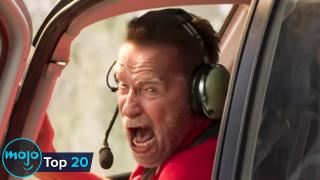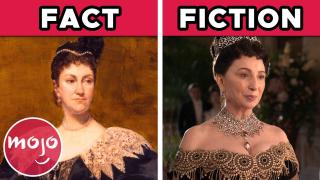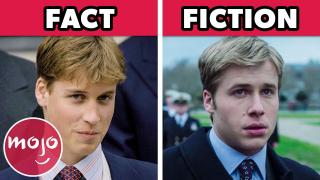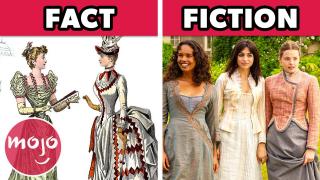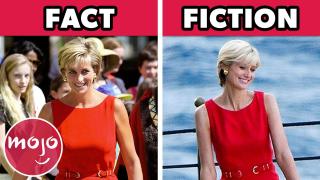Top 10 Ads Gone WRONG
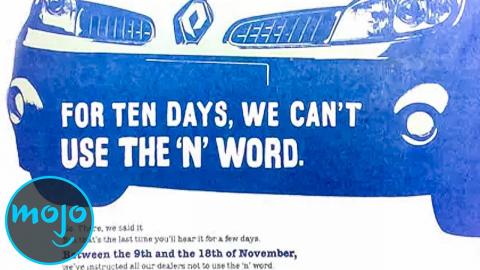
#10: Stay Safe by Staying Apart
McDonald’s While some businesses went the extra mile and paid employees to stay home and safe during the Covid-19 pandemic, others tried to maintain the status quo and stay open. McDonald’s was a company that continued to bring workers in. During the height of the pandemic, a marketing campaign came out of Brazil called “Stay Safe by Staying Apart.” This promotion saw the company support social distancing by pulling their arches apart. Shortly after people saw the altered logo on the Brazil accounts, it was criticized by people who saw the campaign as a hypocritical cash grab. Many people felt the fast food company should’ve put more focus on actually distancing their employees than their logo.
#9: The Super Seven Incher
Top 20 Super Bowl Commercials of 2024
Burger King When you’re a stock model, there’s always a risk that your photos will be used in ways that you don’t agree with. An anonymous model learned that the hard way when one of her pictures was used in a risqué ad. In a promotion for a Burger King in Singapore, a long sandwich was placed in front of a woman’s mouth in an extremely suggestive way. Although the “Super Seven Incher” wasn’t meant for an international campaign, people all over the world rejected it. Many considered the ad to be sexist and inappropriate. Additionally, the outraged model publicly called out the company for not informing her how her image would be used. The suggestive ad ironically ultimately ended up turning people off to Burger King.
#8: The Life
Top 10 Things The Gilded Age Gets Factually Right & Wrong
Microsoft Marina Abramović is known in the art world as a boundary pushing performance artist. When Microsoft wanted to promote their HolOLens2 virtual headset, they decided to collaborate with her. The ad featured Abramović’s using the company’s tech to make an art piece known as “The Life”. Soon after the artistic ad was released, conspiracy theories flew about the piece. There were accusations that Abramović’s art endorsed satanism. The online commenters who jumped on this bandwagon were quick to publicly criticize the video. After getting negative feedback from certain users, Microsoft decided to take the advertisement down. In the aftermath of the campaign, Abramović revealed how hurt she was that conspiracy theorists had misunderstood the point.
#7: Nasty Goat in Jail
Mountain Dew When PepsiCo pulled Tyler the Creator in to help them promote Mountain Dew, the unique musician made three bizarre ads where he voiced a goat. In one of the controversial commercials, he provides the voice for a violent goat who’s in a police lineup. We then see an injured woman being asked to identify who attacked her. As the goat tries to intimidate the woman into staying silent, it becomes clear that the rest of the police lineup consists of Black men. The commercial drew flack for making light of violence against women. Additionally, many felt that the ad was racist because it stereotyped Black men as criminals. It didn’t take long before Mountain Dew shelved the ad entirely.
#6: Tsunami Relief Campaign
World Wildlife Fund [AKA WWF] What could be controversial about a conservation organization raising money for tsunami relief? Well, just ask the World Wildlife Fund. One of their ad partners decided to illustrate the severity of the 2004 Indian Ocean Tsunami with a campaign that said “The Tsunami Killed 100 Times More People Than 9/11.” Not only did the ads feature a depiction of the 2001 attacks, but it also added additional planes to try and match the tsunami death toll. It’s not hard to see why many people, especially Americans, found the imagery tasteless. Even the WWF washed their hands of the campaign after the controversy and claimed the ad was a pitch that never should’ve seen the light of day. The ad’s detractors would definitely agree.
#5: Real Beauty Campaign
The Crown Season 6: Side by Side Comparisons of the Cast VS Real-Life Royals
Dove Quick tip for anyone in advertising: if you’re doing a campaign centered around “real beauty”, you probably shouldn’t follow Dove’s example. In one infamous ad, a Black woman takes off her shirt to reveal a White woman underneath. Commenters were quick to point out that it looked like Dove was suggesting that real beauty only came when someone lightened their skin. The company said they “deeply regretted” the ad and quickly withdrew it after it got backlash. After the controversy broke, Lola Ogunyemi, the Black model featured in the promotion, spoke out. She claimed that the full video ad gave more context that was not conveyed in the hated commercial. However, Ogunyemi also fully acknowledged that the final result fell short of the mark.
#4: Pipe Job
Hyundai When it comes to advertising a car, there are a few topics companies should probably avoid. At the top of that list is people using cars to cause themselves an early death. This tacky 2013 Hyundai commercial playfully alluded to this dark subject. In it, a man locked himself in a running car within a garage. The supposed gag is that he survives because the Hyundai ix35 does not release carbon monoxide into the atmosphere. For the majority of audiences, the bleak humor didn’t work. Consumers were disturbed by this ad’s willingness to make light of real tragedy to sell their product. While Hyundai claimed that the ad was made by an affiliate and not approved by their parent company, they apologized for the offense regardless.
#3: Guarantee Your Good Name
LifeLock In an effort to prove just how good the company’s Life Lock service was, the data protection agency put out billboard advertisements with the CEO’s full name and social security number. It went…about as well as you’d expect. In the four years following the campaign, CEO Todd Davis had his identity stolen thirteen times. To add insult to injury, the company later had to pay a hefty fine for unethical false advertising. The fact that the company so publicly failed to accomplish its main goal was incredibly ironic. Surprisingly, Lifelock was able to endure the bad media blitz. But we don’t think anyone else will be putting their social security number on the line for the company anytime soon.
#2: The N Word
Top 10 Things The Buccaneers Gets Factually Right & Wrong
Renault The phrase “the N word” is associated far too deeply with a racial slur to be used in a playful manner. In 2007, Renault learned this the hard way when its ad for a ten day promotion was met with instant backlash. The promotion asserted that the company had instructed all of its dealers to “not use the N word” for its November sale. Although one line of the ad clarified that they meant the word no, consumers weren’t laughing along with their joke. The ad was far too inflammatory to stay up without causing controversy. As a result, Renault decided to remove the promotion from the public eye.
#1: The Harrier Fighter Jet
Top 10 Things The Crown Season 6 Part 1 Got Factually Right & Wrong
Pepsi Pepsi’s Live For Now campaign was scrutinized for suggesting that Pepsi could calm the tension at social protests. (xref) However, their Harrier Fighter Jet commercial still managed to be a bigger blunder. In the 1990s, consumers could earn Pepsi Points by purchasing products from the company. One commercial ended with the claim that a jet could be won with seven million points. Although Pepsi intended this as a joke, consumer John Leonard managed to find a way to fulfill the terms of the ad. Fortunately for Pepsi, the company was able to convince a court that the promotion was a silly stunt and not an actual promise. But that victory didn’t stop the marketing blunder from being immortalized in a Netflix documentary.


